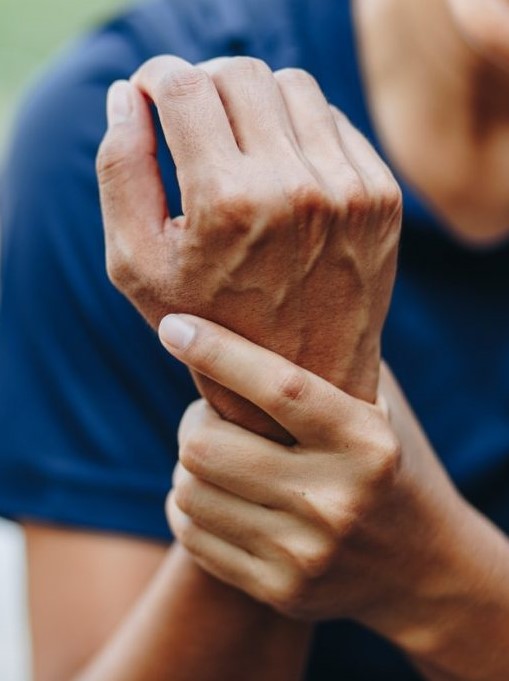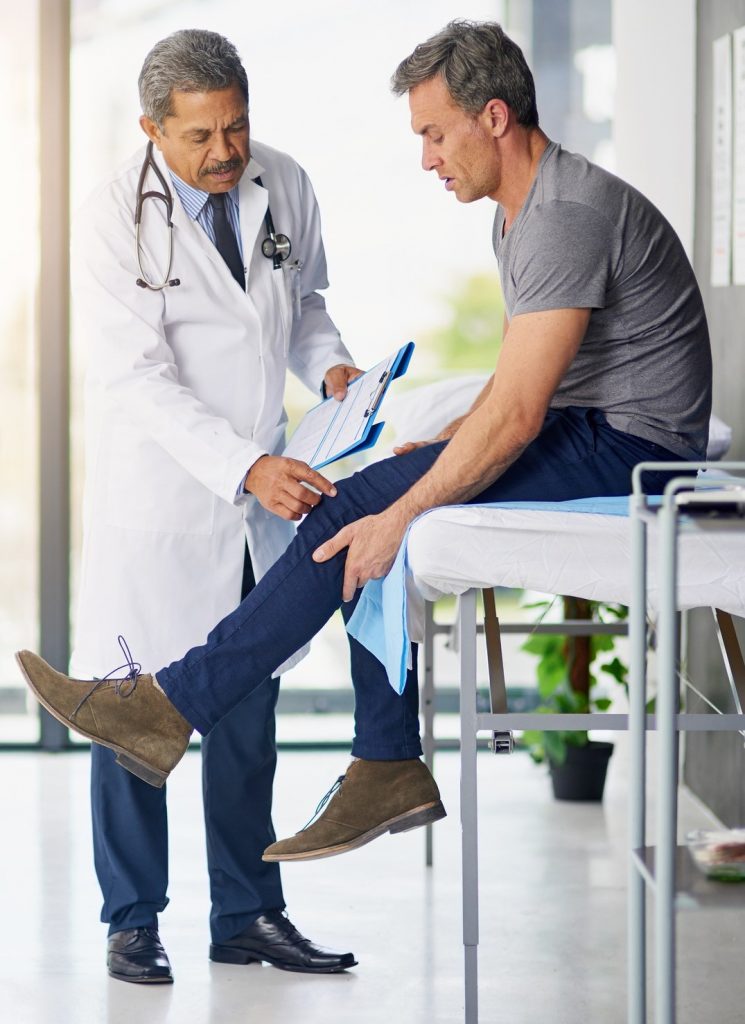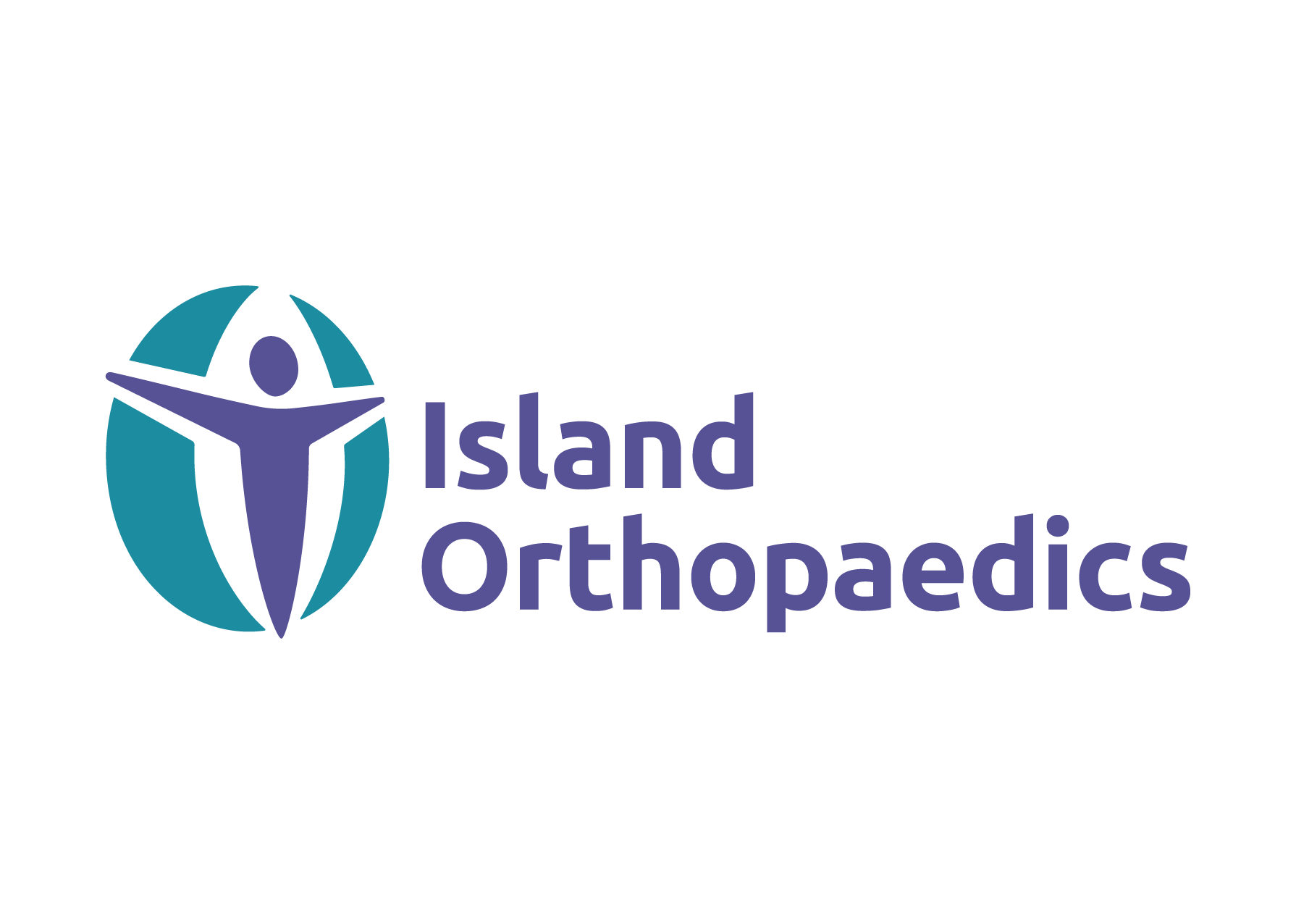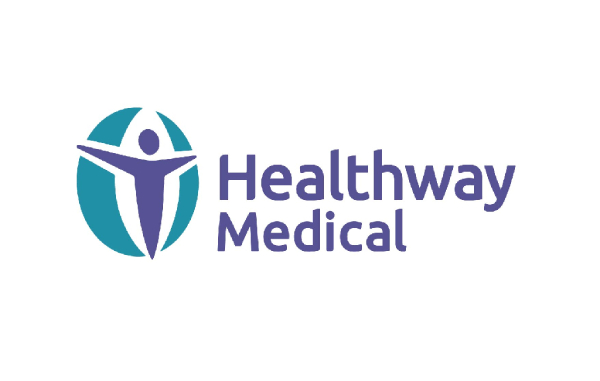Arthritis
What is arthritis?
Arthritis is the inflammation of the joints, causing swelling and tenderness of one or more of your joints. The main symptoms of arthritis are joint pain and stiffness, which typically worsen with age.
Other symptoms include:
- Pain
- Stiffness
- Swelling
- Warmth
- Redness
- Decreased range of motion

Different kinds of Arthritis
There are many kinds of arthritis, but three of the most common types are rheumatoid arthritis, osteoarthritis, and gout.
Osteoarthritis
Osteoarthritis is the most common type of arthritis. It occurs when the protective cartilage that cushions the ends of your bones breaks down due to wear and tear. It can be exacerbated by injury or infection to the joints.
It is most commonly seen in patients of older age, over 60 years of age. The breakdown of the joints typically occurs in the hands, knees, hips, and spine though it can affect any joint. The damage is permanent and cannot be reversed.
Rheumatoid arthritis
Rheumatoid arthritis is an autoimmune disorder which causes your body’s immune system to have an abnormal reaction to the tissues of the body. When the immune system attacks the joints, it affects the synovium, a soft tissue in your joints that produces a fluid that nourishes the cartilage and lubricates the joints.
It most commonly affects people between the ages of 40 and 60, especially women. The condition typically affects the small joints, especially of the wrists, hands, and feet. It causes pain, stiffness and swelling and is worst in the morning.
Gout
Gout is a form of arthritis caused by an excess of uric acid in the body. Uric acid is a by-product of the breakdown of proteins, normally removed by the kidneys. However, in cases of gout, uric acid builds up and forms crystals which are deposited inside the joints, causing pain and swelling in the joint.

What treatment is available for arthritis?
Physiotherapy
Working with a physiotherapist can help to maintain strength in the muscles around the joints and reduce stiffness in the affected joints.
Hot/Cold treatment
For stiff joints, warm water or a heating pad can help. With a hot, painful joint, cold packs or water may be better to relieve the pain.
Medication
Medication can be prescribed for all forms of arthritis, to manage the pain.
Treatment for rheumatoid arthritis involves taking medicines which reduce the pain and swelling of the joints. Other medicines to slow down the progress of the disease may be added later.
For Gout, medication can be prescribed to help reduce the uric acid level in the body.
Surgery
In later stages, surgery may be needed to repair or replace badly damaged joints.
How can I change my lifestyle to help with arthritis?
Osteoarthritis
If you are overweight, losing some weight will reduce the strain on your hips and knees.
Engage in regular exercise that helps keep you fit but does not strain your joints (e.g. swimming)
Gout
Avoid eating food high in purines, especially organ meats. Drink plenty of water and avoid alcohol.
High purine foods include:
- organ meats like liver, kidney, brain
- small fish (like ikan bilis, sardines) and fish roe
- meat extracts, yeast extracts (like Marmite) and stock cubes
- seafood like crab, cockles, prawns, scallops

Our Clinics:
Island Orthopaedics (Mount Elizabeth Novena)
Island Orthopaedics (Mount Elizabeth Hospital)
Island Orthopaedics (Mount Alvernia Hospital)
Island Orthopaedics (Gleneagles Medical Centre)







